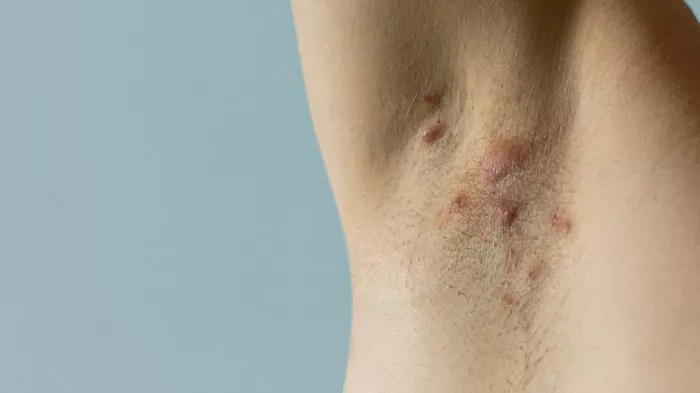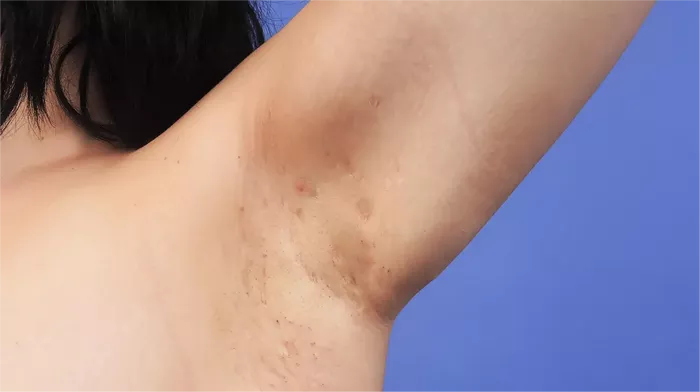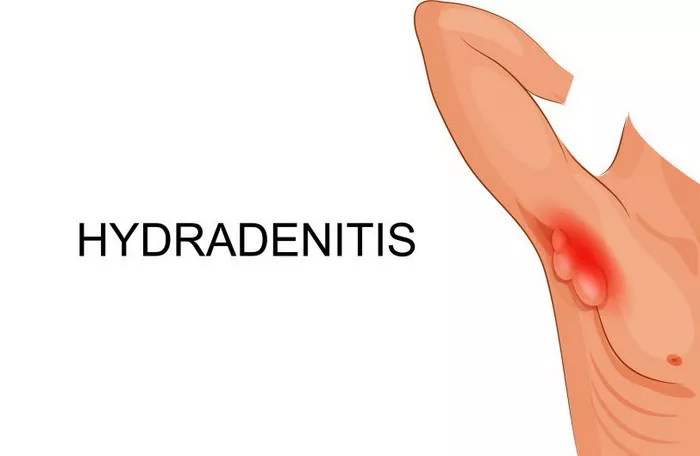Hidradenitis suppurativa (HS) is a chronic inflammatory skin condition characterized by painful lumps, abscesses, and tunnels that develop in areas where skin rubs together, such as the armpits, groin, and buttocks. This condition can significantly impact a person’s quality of life due to discomfort, pain, and recurrent infections. While HS primarily affects the skin, there has been ongoing research into whether it is linked to an increased risk of certain cancers, including breast cancer.
Understanding Hidradenitis Suppurativa
To delve into the potential link between HS and breast cancer, it’s crucial to understand the nature of both conditions. HS is believed to result from a combination of genetic and environmental factors. It involves inflammation of the hair follicles and apocrine glands, leading to the formation of painful nodules, abscesses, and draining tunnels. The exact cause of HS is not fully understood, but factors such as hormonal imbalances, obesity, smoking, and a family history of the disease may contribute to its development.
HS and Cancer Risk
Research exploring the association between HS and cancer risk is still evolving. Several studies have investigated whether individuals with HS are at a higher risk of certain cancers, including breast cancer. However, the findings have been mixed, and no definitive conclusions have been reached.
One hypothesis suggests that chronic inflammation, which is a hallmark of HS, may play a role in cancer development. Prolonged inflammation can lead to genetic mutations and cellular changes that increase the likelihood of cancerous growth. In the case of HS, ongoing inflammation in affected areas could theoretically contribute to an elevated cancer risk.
Examining Breast Cancer Risk
Breast cancer is one of the most prevalent cancers globally, affecting both men and women. The risk factors for breast cancer include age, family history, hormonal factors, obesity, and lifestyle choices. While chronic inflammation has been linked to certain types of breast cancer, the specific relationship between HS and breast cancer remains unclear.
Limited Evidence and Research Gaps
Studies exploring the potential link between HS and breast cancer have produced conflicting results. Some research suggests a modestly increased risk of breast cancer among individuals with HS, while other studies have not found a significant association. The challenges in studying this relationship stem from the rarity of HS, the variability in disease severity, and the need for long-term follow-up to assess cancer incidence accurately.
One notable study, published in the British Journal of Dermatology, examined cancer risk among individuals with HS and found a slight increase in overall cancer risk, including breast cancer, compared to the general population. However, the study’s authors emphasized the need for further research to confirm these findings and identify underlying mechanisms .
Potential Biological Mechanisms
The biological mechanisms underlying a potential association between HS and breast cancer remain speculative. Chronic inflammation, altered immune responses, and hormonal imbalances have all been implicated in the pathophysiology of both conditions. It is plausible that these shared pathways could contribute to an increased cancer risk, although more rigorous studies are needed to elucidate these connections.
Clinical Implications and Recommendations
For individuals living with HS, understanding the broader health implications of the condition is essential. While the evidence linking HS to breast cancer remains inconclusive, it is prudent for healthcare providers to be vigilant and monitor patients with HS for signs of cancer and other potential complications. Routine screenings, healthy lifestyle interventions, and individualized care plans can help mitigate overall health risks associated with chronic inflammatory conditions like HS.
Conclusion
In conclusion, the relationship between hidradenitis suppurativa and breast cancer is an area of ongoing investigation. While some studies suggest a potential link, the evidence remains inconclusive, and further research is needed to clarify this association and identify underlying mechanisms. In the meantime, individuals with HS should maintain regular follow-ups with healthcare providers and adopt healthy lifestyle practices to optimize their overall health and well-being.
The article provides a thorough overview of the potential link between hidradenitis suppurativa and breast cancer, emphasizing the need for further research to clarify this relationship. Let me know if you need further details on this topic!
Related Topics:






















